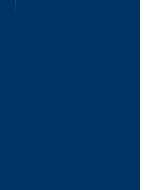
| Education | ||||||||||||||||||||||||||||
|
Medical Students Gain a World of Experience |
||||||||||||||||||||||||||||
|
Medical student participation in international health electives increases their understanding of cross-cultural communication, cost barriers for patients, and the need for patient education, according to study published by UW researchers in the March 2003 issue of Academic Medicine. The authors, Dr. Matthew Thompson, assistant professor of family medicine; Dr. Daniel Hunt, associate dean of academic affairs; and Dr. Linda Pinsky, associate professor of medicine, reported that more than 38 percent of U.S. and Canadian medical students graduating in 2000 had participated in international health electives.
After completing all their required clerkships, fourth-year medical students may apply for six- to eight-week International Health Electives. Three students were selected to participate in this elective in spring 2003: two in medicine and surgery clerkships, which included public health work, in the Marshall Islands, and a third student in an obstetrics and gynecology clerkship in Trinidad. In spring 2004 there will be sites for this elective in Ghana, Peru and rural Australia. Students and people in the country visited give the School of Medicine evaluations and feedback from each experience. This year, the Bill & Melinda Gates Foundation generously supported UW Medicine’s efforts to improve world health. The foundation made a grant for a herpes treatment study to reduce HIV transmission in Africa, India, and South America. Another gift helped create the Puget Sound Partners for Global Health Fund at UW Medicine. |
||||||||||||||||||||||||||||
|
© 2003 - 2004 UW Medicine
Maintained by UW Health Sciences and Medical Affairs News and Community Relations Send questions and comments to drrpt@u.washington.edu |
||||||||||||||||||||||||||||


